Will Gompertz reviews Captain Marvel starring Oscar-winning Brie Larson ★★★☆☆
- Published
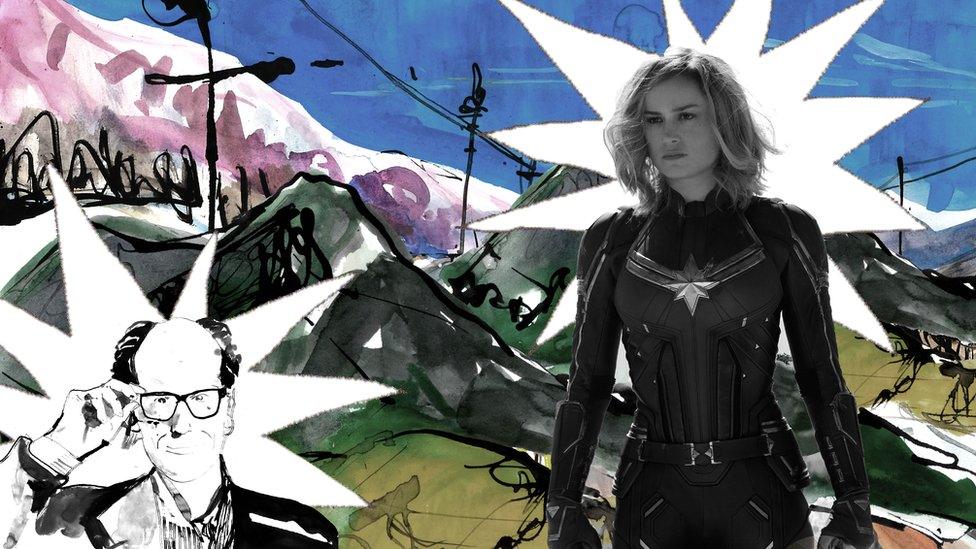
Captain Marvel's backstory is about as straightforward as a Heston Blumenthal tasting menu.
Even the snippet of it explored in this latest Marvel Cinematic Universe (MCU) release, which barely scratches the surface of the character's 80-year old history, manages to be more opaque than a billionaire's tax return.
That, at least, is the premise of this origin movie, which could just as well have been called Captain Millennial. Our photon-fisted all-action hero is a tech-savy, civic-minded, self-improver with identity issues.
Captain Marvel (Brie Larson), or Kree alien Vers as she is called when we first meet her, doesn't know who she is. Constant flashbacks to past events suggest there's more to her than her Kree colleagues are letting on. But it's all a bit of a fog, as are the first 10 minutes of the movie.
Vers is being schooled in the art of combat by Kree Starforce commander Yon-Rogg (a yellow-eyed Jude Law), who is trying to help her be the "best version of herself", by mansplaining to the wilful wannabe-superhero the classic philosophical trope of not letting her heart rule her head.
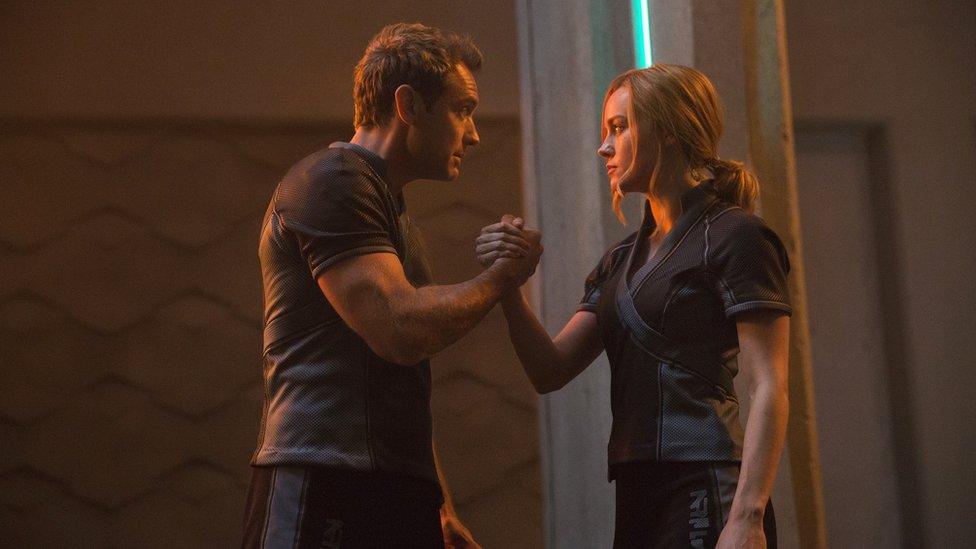
Jude Law as Cdr Yon-Rogg, gives a guiding hand to Carol Danvers/Vers/Captain Marvel (Brie Larson)
She has to get a handle on her emotions and fiery fists, he insists, before Supreme Intelligence (Annette Bening) will allow her to go out on a mission to fight the Kree's arch enemy: the shape-shifting, lizard-eared, identity-snatching Skrulls.
She doesn't have to wait long.
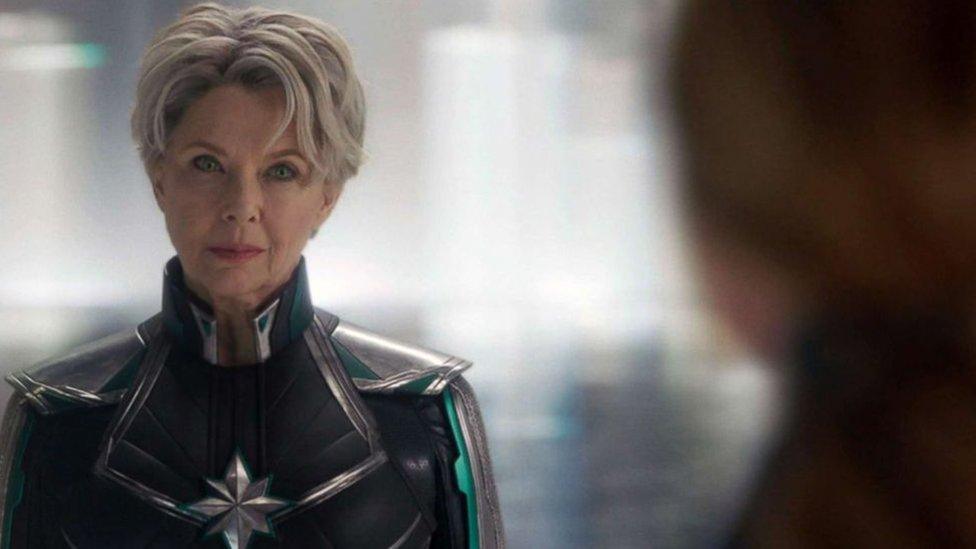
Annette Bening plays the embodiment of the Kree supercomputer, the Supreme Intelligence, Mar-Vell
The directing duo behind the camera, Anna Boden and Ryan Fleck, have a film to get on with and hi-fi sci-fi fight sequences to deliver. You can sense them frantically priming their cinematic canvas: arranging players, establishing storylines, and giving MCU's "first stand-alone, female-franchise title character" a personality.
The film only starts to find its feet when Vers loses hers and crash lands in Los Angeles, circa 1995. Cue a nostalgia fest as the Woman Who Fell to Earth through the roof of a Blockbuster Video store picks herself up (a recurring theme) before picking out a VHS of The Right Stuff - the Tom Wolfe-written Philip Kaufman-directed 1983 film about the pioneering Mercury Seven astronauts.
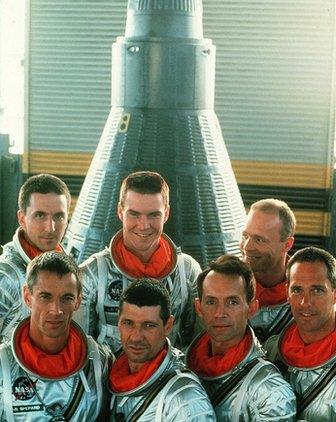
The Right Stuff (1983 film about the original Mercury Seven astronauts) comes in handy for both Captain Marvel and our understanding of her character
The shot lasts for only a few seconds but it carries some weight. It is more than an amusing aside about the film rental choice of a visiting alien. It's a significant clue to discovering her past. And a mark of the subtlety brought by both Brie Larson and the directors to a genre not always recognised for understatement...
Enter S.H.I.E.L.D agent Nick Fury, a digitally "de-aged" Samuel L Jackson, who appears not only impossibly fresh-faced but also without the character's trademark eye patch.
Given the time and place in which the action is set, and the film's retro vibe and pop-culture call-backs, there's the tantalising possibility of Fury bumping into Jules Winnfield (the hitman Jackson played in Pulp Fiction) proclaiming "The path of the righteous man is beset on all sides by the iniquities of the selfish and the tyranny of evil men."
And aliens, he should have added.
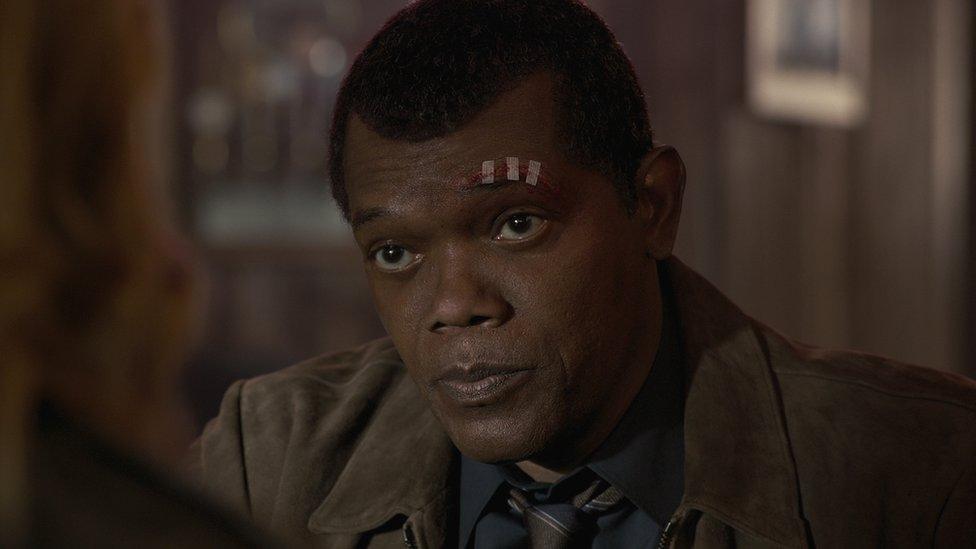
Samuel L Jackson, who returns as a "gentler" Nick Fury, said part of the challenge in this film was that he now has two eyes and hair
Because Agent Fury is caught between the Krees and the Skrulls who are having it out on Earth - or Planet C-53 as they call it when being polite - he is destined to be collateral damage if he doesn't do something sharpish.
The laborious set-up is complete. Vers, or, more accurately Carol Danvers of the United States Air Force, as she soon discovers, buddies up with Fury and the film takes off like its namesake.
There are twists and turns and a spot of soul-searching as Danvers realises she has to shed who she thought she was, to become who she is, Captain Marvel. It is a journey that the Oscar-winning Brie Larson tackles with real skill.
Playing an insecure, self-doubting, slightly lost superhero is not an easy trick to pull off: vulnerability and invincibility don't generally go hand-in-hand.
The fact that Larson convincingly portrays both, simultaneously, is testament to her talent and those with whom she interacts, particularly Jackson, Ben Mendelsohn as Skrull leader Talos, and Lashana Lynch who plays Maria Rambeau: a single mother, a flying ace and Danvers's best friend.

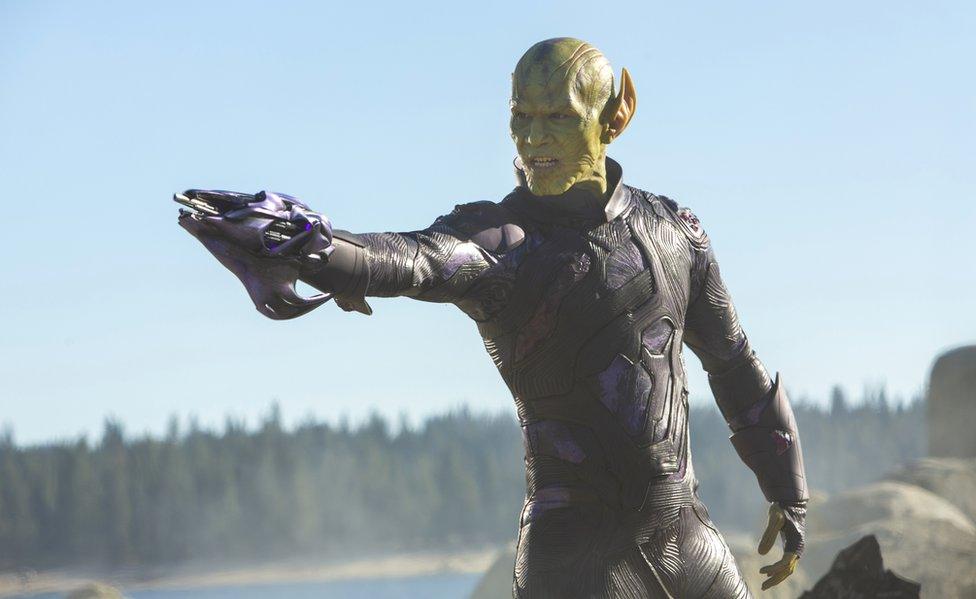
Ben Mendelsohn, who plays leading Skrull baddie, Talos, says the Skrulls are "the heavy metal rock stars of Marvel"

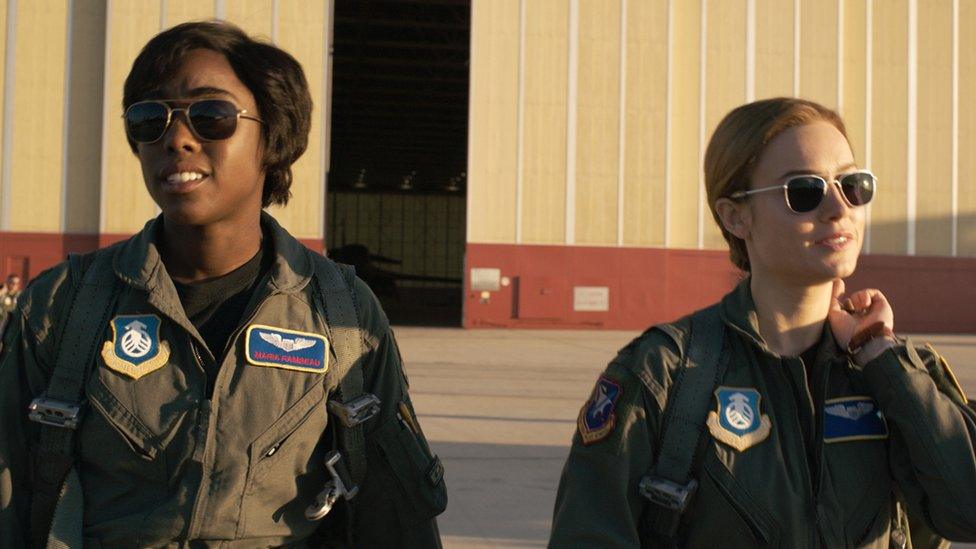
Lashana Lynch (Maria Rambeau) says she's "part of a shift in the world" with this first female Marvel superhero film
There is one small snag, however.
Once the '90s visual jokes, the Top Gun references (among which is a star turn by an orange cat called Goose), and Agent Fury one-liners have run their course, the actual action adventure plot driving the film forward is fatally exposed: it is about as exciting as watching Windows 95 load.
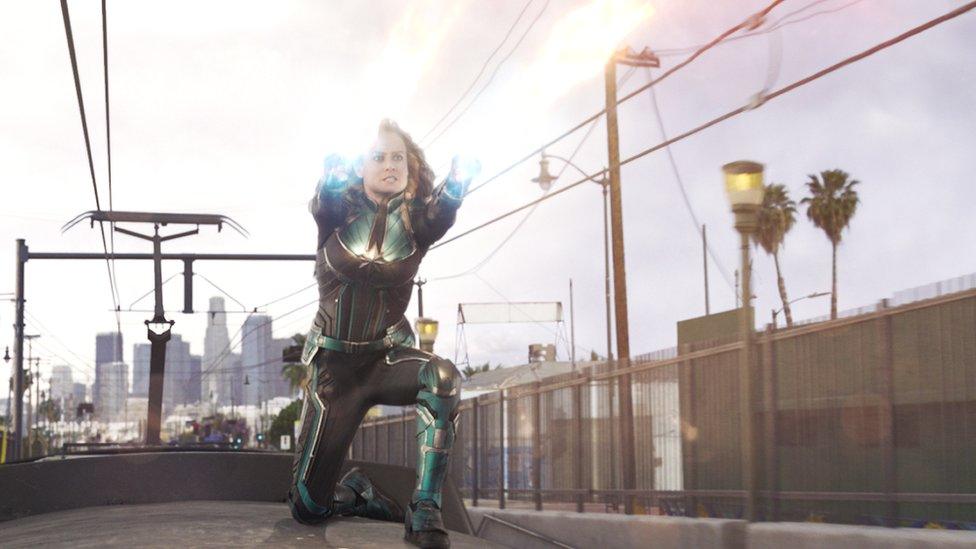
Brie Larson carries the film as a warrior with incredible powers, but it is her character's internal journey that stands out
The interior life of Carol Danvers, which ranges from self-discovery to a philosophical questioning about the nature of female empowerment, overshadows all else and makes the action sequences appear as afterthoughts.
Maybe that is the trajectory of Marvel movies: more introspection, less action. We'll find out soon enough when Avengers returns next month featuring Brie Larson as Captain Marvel.
Has she done for the #MeToo movement what Black Panther did for African American cinema? Is Captain Marvel as culturally significant as that first ever Oscar-winning MCU film?
No, in short.
It is not as good a film.
I very much doubt it will follow in Black Panther's award-wining footsteps. But it is not as far behind in terms of reflecting a shifting attitude in Hollywood as some would have you believe.
This is an incarnation of a thoughtful superhero who operates on her own terms, or, seeing as we are in the mid-'90s, knows how to assert her girl power.